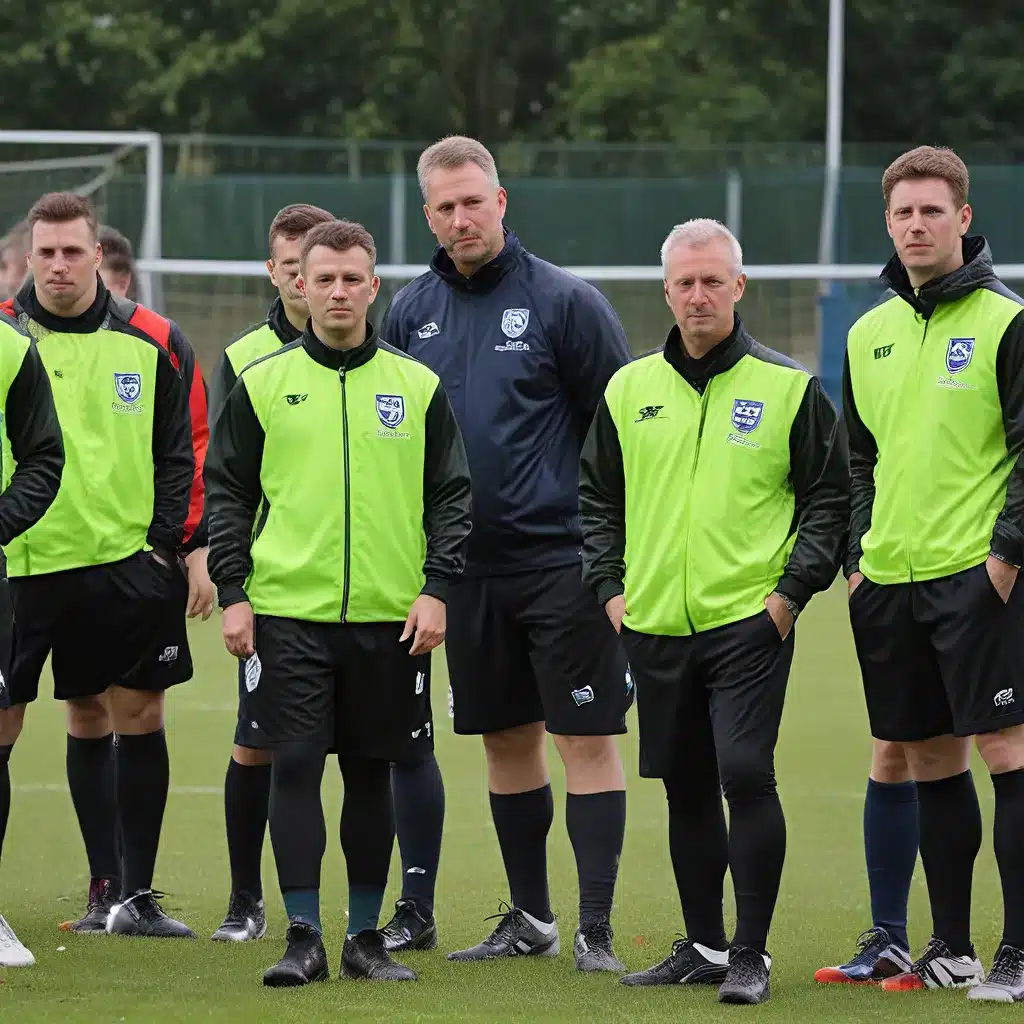
The Art of Adapting: Kent Managers Embrace New Strategies
The Kent Football League has long been a hotbed of tactical innovation, with managers constantly seeking to outmaneuver their rivals and gain the upper hand. In recent years, the league has seen a surge of new ideas and approaches, as teams strive to stay ahead of the curve and adapt to the ever-changing landscape of modern football.
One of the key drivers of this evolution has been the increasing emphasis on data and analytics in the game. Managers in the Kent Football League have embraced these tools, using detailed performance metrics and predictive modeling to gain insights into their opponents’ strengths and weaknesses. By analyzing factors like possession, passing accuracy, and shot conversion rates, they’ve been able to devise more effective game plans and make smarter in-game adjustments.
Take the case of Sunderland AFC, the reigning champions of the Kent Football League. Manager Alex Dunn has been widely praised for his innovative use of tactical rotations and dynamic substitutions, which have allowed his team to maintain a high level of intensity throughout the match. “In today’s game, you can’t just rely on your starting XI to get the job done,” Dunn explains. “You need to have a deep and versatile squad, and you need to be willing to make bold decisions to keep your opponents off balance.”
This adaptability has been crucial in the Kent Football League, where teams often face a diverse array of playing styles and tactical approaches. Managers like Dunn have had to constantly reevaluate their strategies, experimenting with new formations, pressing patterns, and attacking principles to stay one step ahead of the competition.
Embracing the Unexpected: Kent Managers Thrive on Uncertainty
Another key aspect of the Kent Football League’s tactical evolution has been the embrace of unpredictability. Managers have recognized that in the fast-paced, high-intensity environment of modern football, rigid game plans are often a liability. Instead, they’ve emphasized the importance of adaptability and quick decision-making in the face of rapidly changing circumstances.
This flexibility has been particularly evident in the way Kent Football League teams respond to in-game challenges. When faced with injuries, suspensions, or changes in momentum, managers have had to think on their feet and make adjustments that can swing the course of a match.
One notable example came in the recent Kent Derby between Gillingham FC and Charlton Athletic. With Gillingham trailing 1-0 in the 75th minute, manager James Hanson made a bold substitution, bringing on a young attacking midfielder who had made only a handful of appearances for the club. The unexpected move paid off, as the substitute scored the equalizer and set up the winning goal in the dying moments of the match.
“In this league, you can never count a team out,” says Hanson. “You have to be prepared for the unexpected, and you have to be willing to take risks to get the results you need.”
This embrace of unpredictability has also been reflected in the tactical approaches of Kent Football League teams. Managers have been experimenting with a wider range of formations and playing styles, blending traditional methods with innovative new ideas.
For example, Folkestone Invicta has become known for its high-pressing, possession-based game, which aims to suffocate opponents and create turnovers in dangerous areas. Meanwhile, Maidstone United has found success with a more direct, counter-attacking approach, relying on the pace and skill of its forwards to catch defenses off guard.
The Human Factor: Kent Managers Prioritize Player Development and Morale
While the tactical and analytical aspects of the game have become increasingly important in the Kent Football League, the human element has remained a crucial factor in the success of local teams.
Managers in the league have recognized the importance of player development and squad management, investing time and resources into ensuring that their players are physically and mentally prepared for the rigors of the season.
“It’s not just about the Xs and Os,” says Dartford FC manager Ryan Johnson. “You have to understand your players and create an environment where they can thrive both on and off the pitch.”
This has translated into innovative training methods, personalized nutrition and recovery plans, and regular team-building exercises. Managers have also placed a greater emphasis on player welfare, ensuring that their athletes are supported and cared for throughout the season.
The impact of this approach has been particularly evident in the performances of Kent Football League teams during the latter stages of the season. While other clubs may struggle with fatigue and injuries, the well-managed teams in the league have consistently maintained a high level of intensity and competitive edge, often surging up the table in the final months of the campaign.
The Future of Kent Football: Embracing Innovation and Resilience
As the Kent Football League continues to evolve, the role of managers in shaping the future of the game has never been more crucial. With technological advancements, shifting fan expectations, and ever-changing tactical trends, the challenges facing these local football leaders are multifaceted and complex.
However, the resilience and adaptability demonstrated by Kent Football League managers in recent years suggests that they are more than up to the task. By embracing data-driven analysis, fostering a culture of creativity and risk-taking, and prioritizing player development and well-being, these local football leaders are shaping the future of the game in their communities.
As the Kent Football League continues to capture the imagination of football fans across the region, the tactical masterclasses of its managers are sure to remain a source of fascination and inspiration. With each hard-fought match, each innovative strategy, and each triumphant comeback, these local football heroes are redefining the boundaries of what’s possible in the world of Kent football.

